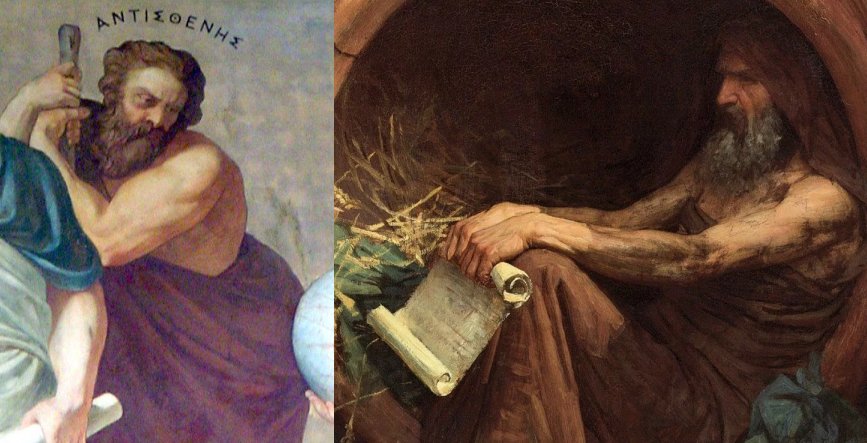Antisthenes And Diogenes – Founders Of Cynicism Were Ancient Greek Philosophers
Ellen Lloyd - AncientPages.com - The concept of cynicism comes from the Greek word for dog ( kynos), but originated in a philosophical school established in ancient Greece.
Denoting their denial of luxuries, wealth, and social status, cynics believe the purpose of life is to live in virtue, in agreement with nature.
Left: Antisthenes, part of a fresco in the National University of Athens. Right: Diogenes of Sinope lived in a barrel in downtown Athens, (by Waterhouse)
This meant satisfying only the most basic requirements of the body by the simplest means possible.
The Cynic School, founded in Athens about 400 B.C., continued in existence until about 200 B.C. The founder of the school was Antisthenes, (c. 445–365 B.C.) a Greek philosopher who was a pupil of Socrates. The best known among his followers is Diogenes of Sinope (c. 412–323 B.C.)
Antisthenes said that desire leads to pleasure and pleasure to the misery of insufficient and temporal happiness. Antisthenes valued virtue more than anything. In his opinion, virtue is the only good, and pleasure is always evil. Self-control is the essence of virtue.
According to his philosophy, wise people learn to above all things to despise material needs and the artificial comforts in which worldly men find happiness.
Self-control, he said, is the essence of virtue, and a wise man will learn above all things to despise material needs and the artificial comforts in which worldly men find happiness. Virtue was according
Nicknamed ‘the dog’ for his vagrant lifestyle, Diogenes was described as ‘a Socrates gone mad’.
Alexander the Great's meeting with Diogenes.
Diogenes took the concept of cynicism to its highest level. Legends tell Diogenes lived in a barrel (actually a kind of storage jar) on the outskirts of the marketplace. He made his living by begging, refusing to wear anything but the simplest of cloth.
Diogenes was sometimes referred to as “Diogenes the dog”, but he was by no means offended by this. To him, it was almost like a compliment because he believed dogs were more in touch with nature. Dogs do not care for social status or material possessions.
The happiest person, who in Diogenes’ phrase “has the most”, is, therefore, someone who lives in accordance with the rhythms of the natural world, free from the conventions and values of civilized society, and is “content with the least”.
Alexander the Great who was his great admirer met the Greek philosopher in Corinth while he was bathing in the morning sunlight. The King of Macedonia asked Diogenes if there was anything he (a man who seemingly had everything) could do for him.
The philosopher responded, “Yes, stand out of my light”. Alexander the Great was said to have been so impressed with the remark that he then stated “If I were not Alexander, I would wish to be Diogenes”.
As a general philosophic principle, cynicism was highly influential upon the later Stoic philosophers.
Written by Ellen Lloyd – AncientPages.com
Copyright © AncientPages.com & Ellen Lloyd All rights reserved. This material may not be published, broadcast, rewritten or redistributed in whole or part without the express written permission of AncientPages.com and Ellen Lloyd
Expand for referencesMore From Ancient Pages
-
 On This Day In History: George Bernard Shaw Died – On Nov 2, 1950
News | Nov 2, 2016
On This Day In History: George Bernard Shaw Died – On Nov 2, 1950
News | Nov 2, 2016 -
 Ancient Roman Joke Inscribed On A 2,000-Year-Old Pen – Discovered
Archaeology | Jul 29, 2019
Ancient Roman Joke Inscribed On A 2,000-Year-Old Pen – Discovered
Archaeology | Jul 29, 2019 -
 207-Year-Old Whaling Shipwreck Discovered In Gulf Of Mexico
Archaeology | Mar 23, 2022
207-Year-Old Whaling Shipwreck Discovered In Gulf Of Mexico
Archaeology | Mar 23, 2022 -
 Where Were Herod The Great’s Royal Alabaster Bathtubs Quarried?
Archaeology | May 17, 2022
Where Were Herod The Great’s Royal Alabaster Bathtubs Quarried?
Archaeology | May 17, 2022 -
 Olmec Civilization Remains An Intriguing Ancient Puzzle
Civilizations | Feb 2, 2017
Olmec Civilization Remains An Intriguing Ancient Puzzle
Civilizations | Feb 2, 2017 -
 How Large Was The ‘Giant’ Dunkleosteus Terrelli – Prehistoric King Of The Oceans?
News | Apr 10, 2023
How Large Was The ‘Giant’ Dunkleosteus Terrelli – Prehistoric King Of The Oceans?
News | Apr 10, 2023 -
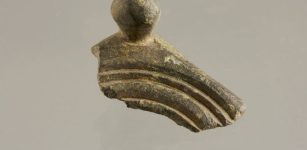 Piece Of Puzzling Roman Artifact Discovered In Belgium
Archaeology | Feb 16, 2023
Piece Of Puzzling Roman Artifact Discovered In Belgium
Archaeology | Feb 16, 2023 -
 Fascinating Portable Art From Torre Cave, Gipuzkoa – One Of The Most Complete Specimens From The Entire Iberian Peninsula
Archaeology | May 26, 2023
Fascinating Portable Art From Torre Cave, Gipuzkoa – One Of The Most Complete Specimens From The Entire Iberian Peninsula
Archaeology | May 26, 2023 -
 Patara Lighthouse Built By Emperor Nero In 64 AD Will Shine Again
Archaeology | Mar 5, 2020
Patara Lighthouse Built By Emperor Nero In 64 AD Will Shine Again
Archaeology | Mar 5, 2020 -
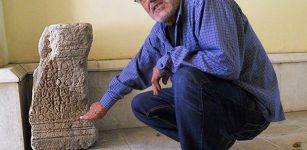 Porobonus – Mysterious Unknown Pagan God
Artifacts | Aug 28, 2015
Porobonus – Mysterious Unknown Pagan God
Artifacts | Aug 28, 2015 -
 Scientists Explore How Neanderthals Caught Birds In Caves For Food
Archaeology | Sep 16, 2021
Scientists Explore How Neanderthals Caught Birds In Caves For Food
Archaeology | Sep 16, 2021 -
 On This Day In History: Irish Saint Columbanus Founder Of Monasteries In Europe Died – On Nov 21, 615
News | Nov 21, 2016
On This Day In History: Irish Saint Columbanus Founder Of Monasteries In Europe Died – On Nov 21, 615
News | Nov 21, 2016 -
 On This Day In History: World War II: Battle Of Cape Esperance Was Fought – On October 11, 1942
News | Oct 11, 2016
On This Day In History: World War II: Battle Of Cape Esperance Was Fought – On October 11, 1942
News | Oct 11, 2016 -
 9,000-Years-Old Underwater Artifacts Found Off The Western Australia Pilbara Coast – Protect Flying Foam Passage Scientists Say
Archaeology | Jun 27, 2023
9,000-Years-Old Underwater Artifacts Found Off The Western Australia Pilbara Coast – Protect Flying Foam Passage Scientists Say
Archaeology | Jun 27, 2023 -
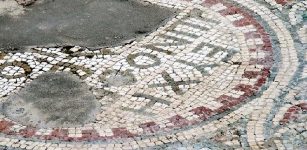 Mosaics With Oceanus And Medusa In Tomb Of Ancient City Of Perge, Turkey
Archaeology | May 16, 2017
Mosaics With Oceanus And Medusa In Tomb Of Ancient City Of Perge, Turkey
Archaeology | May 16, 2017 -
 Mystery Of The 80 Million-Year-Old Sharks’ Teeth In The City Of David
Archaeology | Jul 4, 2021
Mystery Of The 80 Million-Year-Old Sharks’ Teeth In The City Of David
Archaeology | Jul 4, 2021 -
 Ancient Town Pontefract, England Reveals Some Of Its Secrets
Archaeology | Mar 28, 2017
Ancient Town Pontefract, England Reveals Some Of Its Secrets
Archaeology | Mar 28, 2017 -
 On This Day In History: Galilei Galileo Demonstrates His First Telescope – August 25, 1609
News | Aug 25, 2016
On This Day In History: Galilei Galileo Demonstrates His First Telescope – August 25, 1609
News | Aug 25, 2016 -
 Discovery Of Chromosomes Offers Evidence Of Ancient Humans Living In South America Over 18,000 Years Ago
Archaeology | Aug 21, 2022
Discovery Of Chromosomes Offers Evidence Of Ancient Humans Living In South America Over 18,000 Years Ago
Archaeology | Aug 21, 2022 -
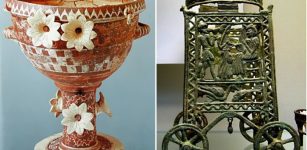 Minoans: Highly Advanced Bronze Age Civilization Of Europe
Featured Stories | Sep 23, 2023
Minoans: Highly Advanced Bronze Age Civilization Of Europe
Featured Stories | Sep 23, 2023

